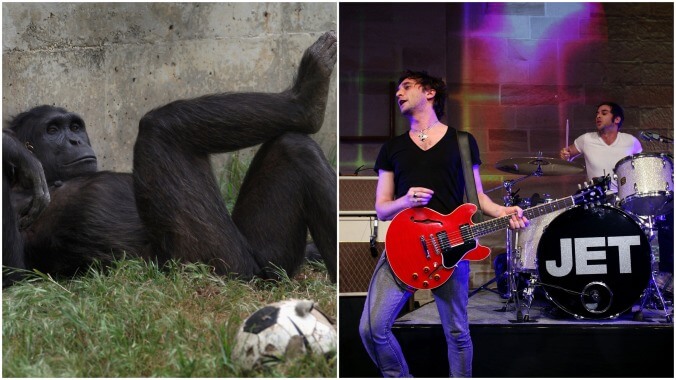Read This: We can thank “Ray Suzuki”’s mom for Pitchfork’s most infamous review
Pitchfork changed music criticism with a single video of a chimp urinating in its mouth. Here’s how it came to pee

Photo: David Silverman
It’s been a hard couple of years for Pitchfork readers and an even harder month. Before its parent company made a cool $2.1 billion off Reddit’s IPO, Condé Nast folded Pitchfork into GQ, laying off dozens of writers and seemingly killing the site. Of course, Pitchfork is still around, and its reviews continue to generate conversation, curiosity, and reverence—making Condé’s behavior even more baffling. Many have eulogized the site since that faithful day when Anna Wintour announced she would be “evolving our Pitchfork team” into unemployment, but only Ringer writer Nate Rogers got to the bottom of that review of Jet’s Shine On that infamously only features an EPIC video of a chimp pissing in its mouth.
For The Ringer, Rogers found the origins of Pitchfork’s most infamous bylines: Ray Suzuki, “Pitchfork’s Alan Smithee,” who was given credit for the review. Suzuki isn’t real. It’s a pseudonym that appears infrequently on the site, originally concocted when there were so few writers that adding a third fake one could help boost the idea that Pitchfork was a larger outfit than it was. However, now that the story has been told, we can actually thank the mother of former Pitchfork president Ryan Kaskie for the urine-positive monkey video. Kaskie says his mother, Jane, was attempting to “speak their language” by sending a funny video. Instead, she gave the internet one of its most legendary pans.








































